Nothing But Thieves talk rhythm, tone and touring with Muse
The UK guitar band on lessons learned on the big stages
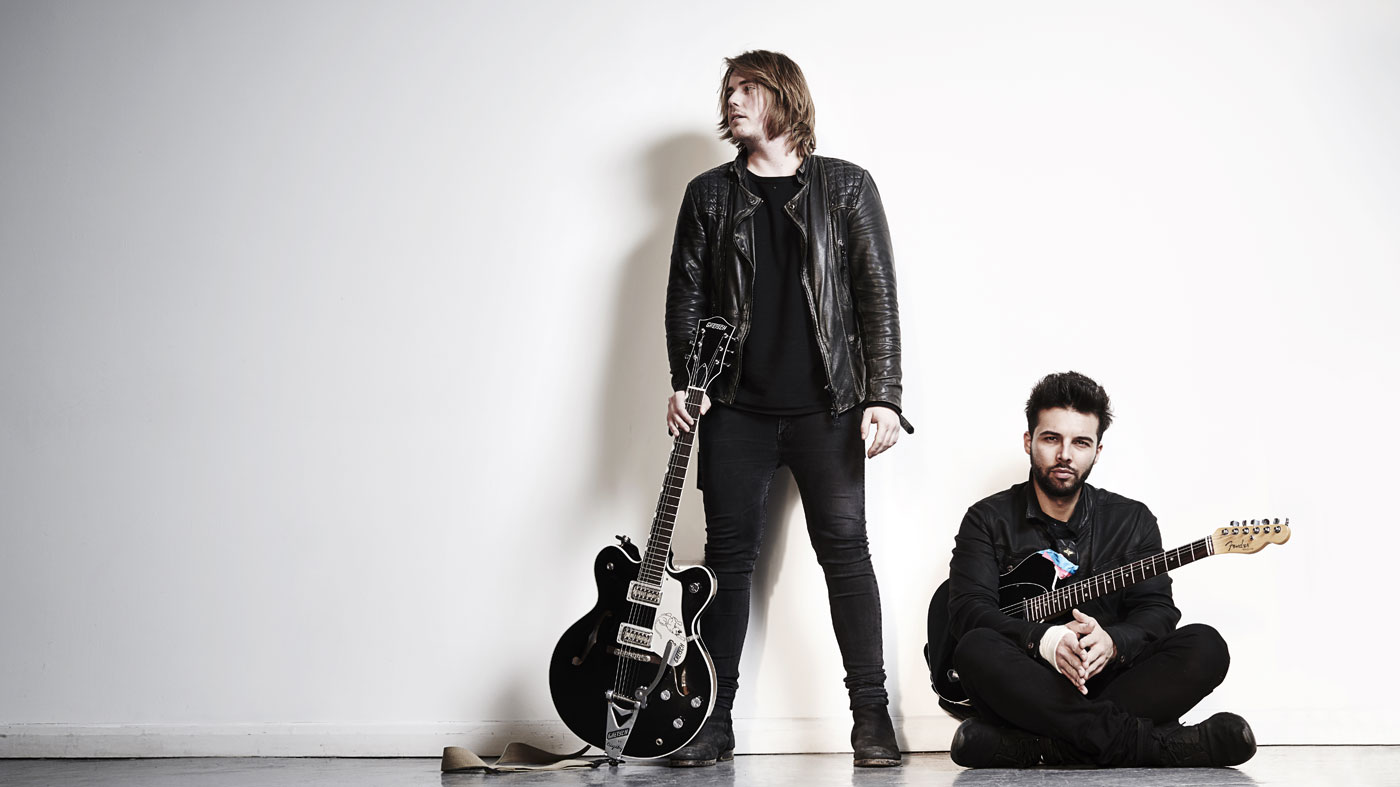
Introduction
Playing packed stadiums with Muse and taking the ego out of guitar playing; Nothing But Thieves aren’t your usual proposition. And that’s what might make them British rock’s next success story
We find Dom Craik and Joe Langridge-Brown soundchecking in Bristol’s church-turned-music-venue Trinity Centre in the midst of their unique version of living the dream.
Their self-titled debut’s chameleonic mix of songs suggests players and songwriters who are way ahead of their years
The guitarists are travelling around the country on a headline tour with their band Nothing But Thieves, but darting off to mainland Europe in between to play stadiums as support act to Muse. And what’s more, they’re playing those massive shows in the round, thanks to Bellamy and co’s 360° stage.
“There’s a lot of running around,” laughs Joe. In more ways than one. “We’d already planned to do the headline run and it was quite late in the day when we were offered the Muse dates,” explains Dom. “Luckily our absolute saint of a booking agent has made it work together.”
That Muse call wasn’t as random as it might sound. Along with glimmers of Radiohead and Jeff Buckley, the globe-conquering band are one of the myriad influences that can be heard in the Nothing But Thieves melting pot, and back in 2015 the young Essex five-piece - completed by vocalist Conor Mason with his Adele-scale vocal range, bassist Philip Blake and James Price - first supported Matt Bellamy’s trio in front of 30,000 fans in Rome, and clearly impressed.
That’s not surprising, because their self-titled debut’s chameleonic mix of songs suggests players and songwriters who are way ahead of their years and prepared to make big venues their second home in the future. And the way Dom and Joe approach their roles is integral to this.
Don't Miss
Nothing But Thieves guitarist Joe Langridge-Brown talks debut album
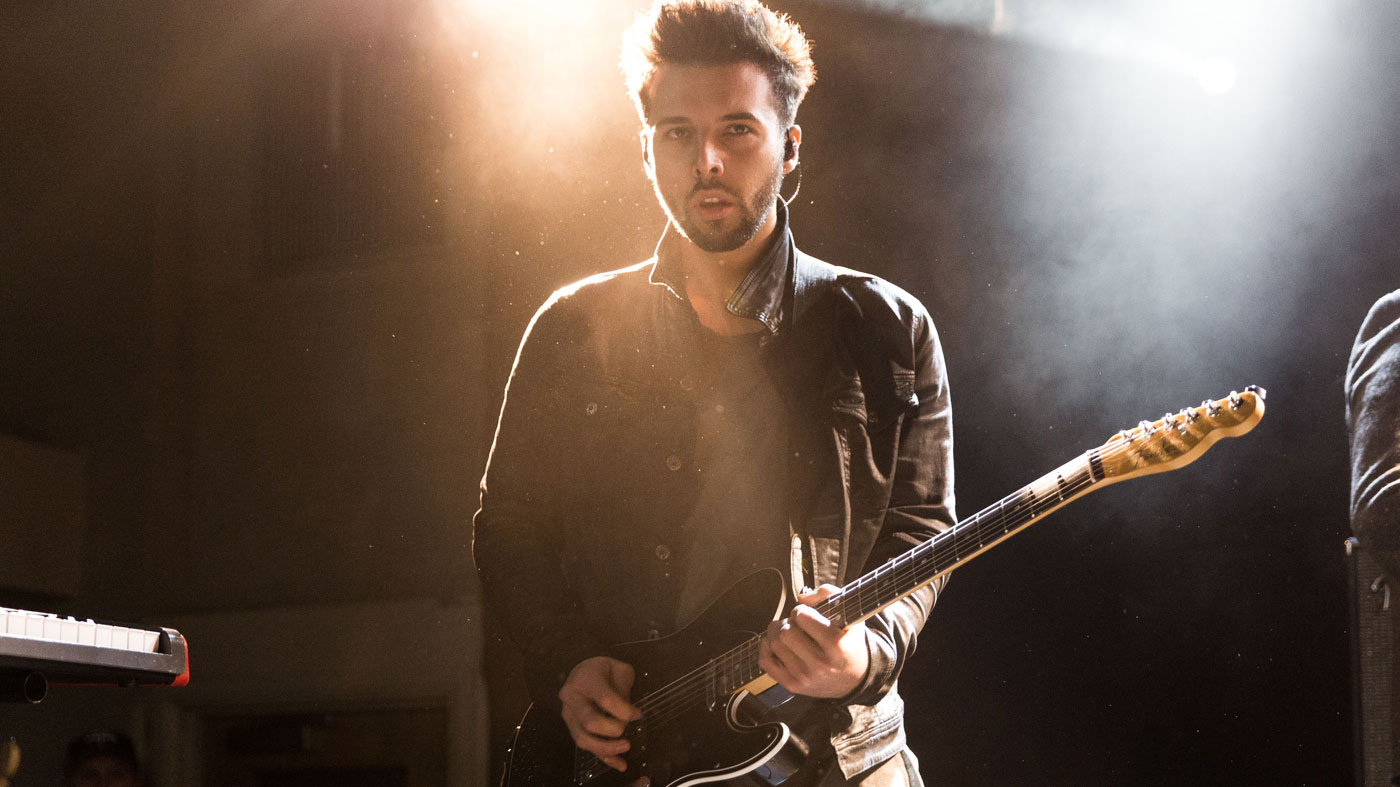
360 tour
So how have you been faring playing on a round stage in the middle of a stadium?
Dom: “As it’s not a common thing, you obviously don’t get a dress rehearsal. You’re slung on to it for the first day and it’s more a testament to Conor - him doing loops and laps of the stage.
On the first night we were saying, ‘Did we do that right? Is that how you’re meant to act on a 360° stage?’
“He was really reluctant to have a wireless mic like Britney or whatever but there’s really no other way to get around it. Like Joe said, you burn a few more calories than on a normal stage.”
Joe: “It was a bit cheeky from Muse, as it rotates for them!”
Dom: “I can’t call them lazy as they have these ramps that go out and Matt Bellamy was pegging it from one side to the other. But by the third or fourth date we were feeling comfortable on it. On the first night we were saying, ‘Did we do that right? Is that how you’re meant to act on a 360° stage?’”
What have you learned most from Muse?
Dom: “I’ve learned a lot about the sound side of things; what they run with their gear. Their sound engineer is one of the best in the world. The desk he uses is only one of three in the UK.
“They run Kempers, and the way they have their pedals, their tech will change them under the stage for them and a lot of that side of things you don’t normally get to see. And that’s made me think about how our set up is and how we want to build it for the future. That’s been quite enlightening.”
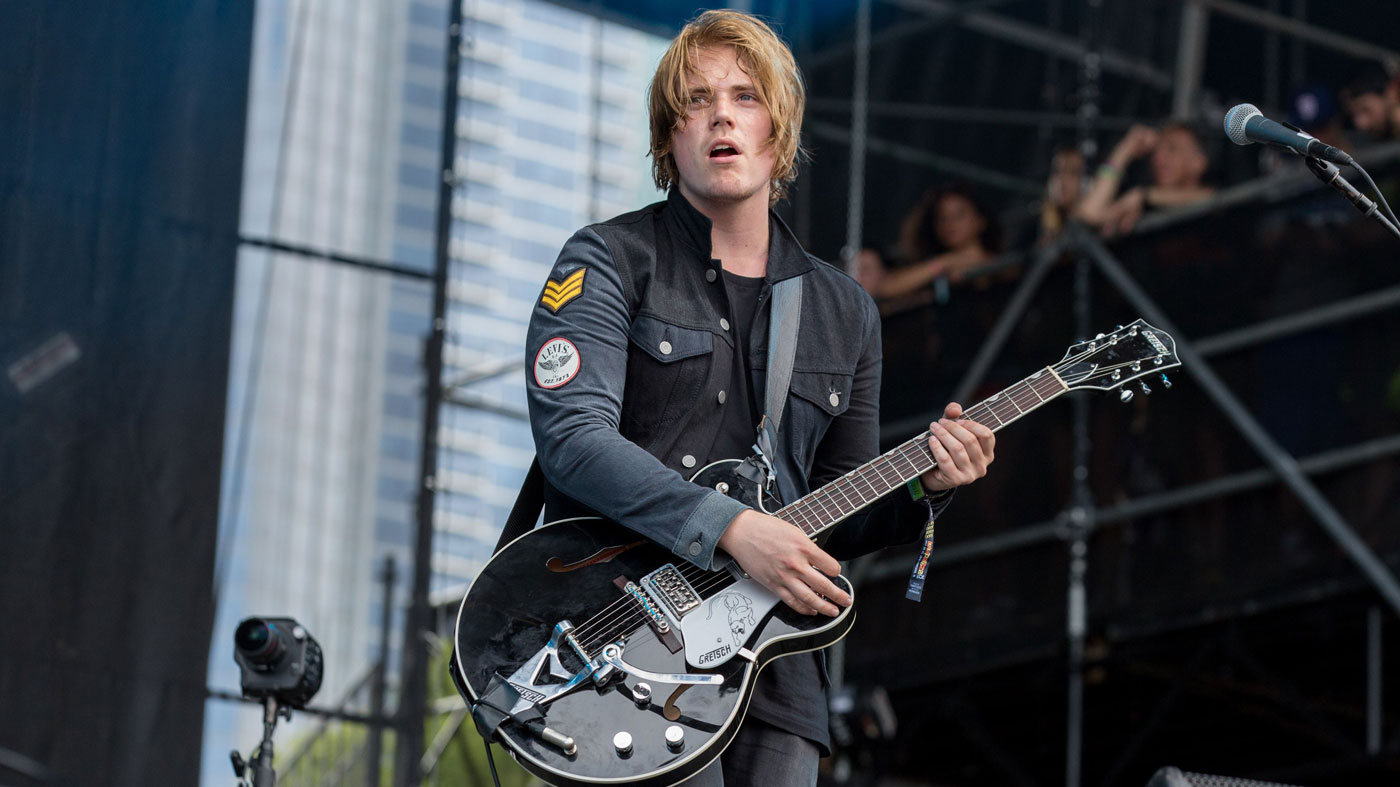
Splitting tones
Playing to that many people obviously has its advantages, have you noticed the effects?
Joe: “After we first supported them in Rome, we did a tour with headline dates and they sold out, so it worked really well for us.”
That’s how it started; I was the Tele and the Vox, and Joe was originally a Les Paul through a Marshall
Dom: “I think we just played a 1,000-cap venue in Rome and we’ve only been to Italy twice. So it shows you the power of supporting Muse. Obviously it says something for the band, because the music isn’t a million miles away. So their fans appreciate it, and we love touring out there as well.”
You don’t have a traditional rhythm/lead split with your roles in the band…
Dom: “I get told that’s quite weird…”
Joe: “I think it’s a little old fashioned to do it that way now, though I get it when you’re a singer that you don’t want to take on too many lead duties. But we do it on sound, really.”
Dom: “Yes, and there’s things that suit Joe’s playing more and things that are more suited to mine. Even down to the kind of gear we have. We have different pedals that can do different things.”
Joe: “Largely I’m the more humbucker/ hollowbody sound and Dom’s the Tele sound. That’s kind of how we break it up.”
Dom: “That’s how it started; I was the Tele and the Vox, and Joe was originally a Les Paul through a Marshall. Over the last few years building the rigs and exploring gear more, we’ve expanded. Fundamentally it’s the same sort of tone in terms of frequencies and sonics but it’s a bit more expanded now I guess.”
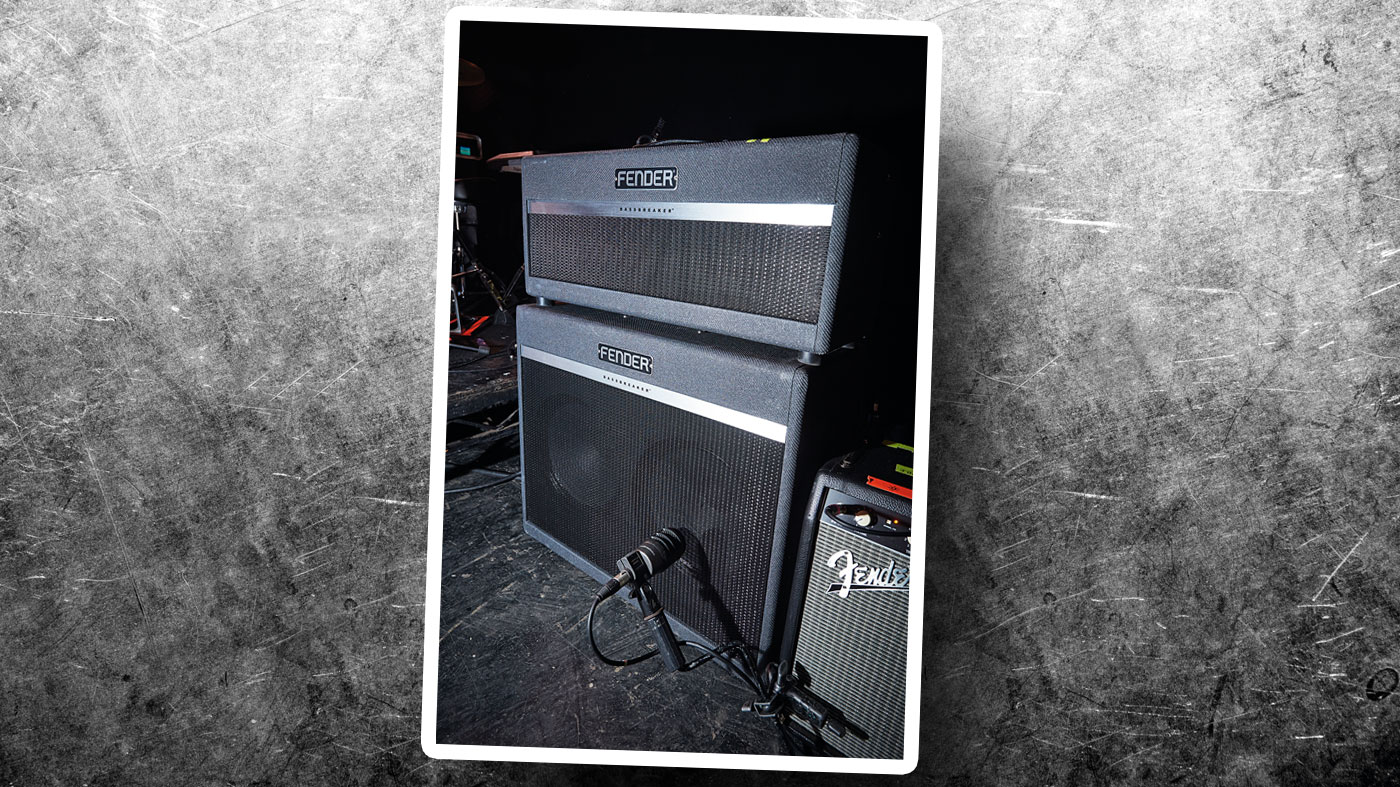
Breaking new ground
Joe, you’re using Fender Bassbreakers…
Joe: “I’m using the Bassbreaker and a Super Sonic. I’m dancing all over the stage with pedals at the moment and I want to be able to press one pedal and three turn on. At that point I’m going to add my Marshall in as well. But it’s a money and space thing at the moment. We’re in a van so we have to hold ourselves back at the minute!
Now I’m much more aware of frequencies and gaps where things should be sitting
“I really like the Bassbreaker. We were given a Super Sonic from Fender and I love that and tonally you don’t have to crank it too much but it really lacked bottom end. When Dom mixed our live recordings we could see what frequencies were missing.
“And we were really lacking this bassy and midrange punch to my sound. I considered getting a Fender Bassman but Neil [Whitcher, head of artist relations] from Fender suggested the new Bassbreaker. So I tried it out and loved it straight away.”
Dom: “When Joe was running his Marshall with a 4x10 it was way too bass-heavy. Then we went to the complete other side of the spectrum, that’s why he went for a 2x12. Then we thought, okay we’ve gone too small and it’s a little too thin. So now we have a lot more fullness. There’s a lot of trial and error, and it is so helpful that I get the [live] multi-tracks and go through them. I’m a bit of a loser with it…”
Joe: “Some might call it geeky, but we kind of enjoy it.”
So you’ve assumed production role in the band as well to some degree, Dom?
Dom: “I produce a lot of music and did a few bits on the album. I never thought it would translate so perfectly to live knowledge but now I’m much more aware of frequencies and gaps where things should be sitting. So even stuff like what mics suit Conor’s voice. What mics pick up the drum kit a little bit more… it’s a lot of trial and error and a massive learning process.”
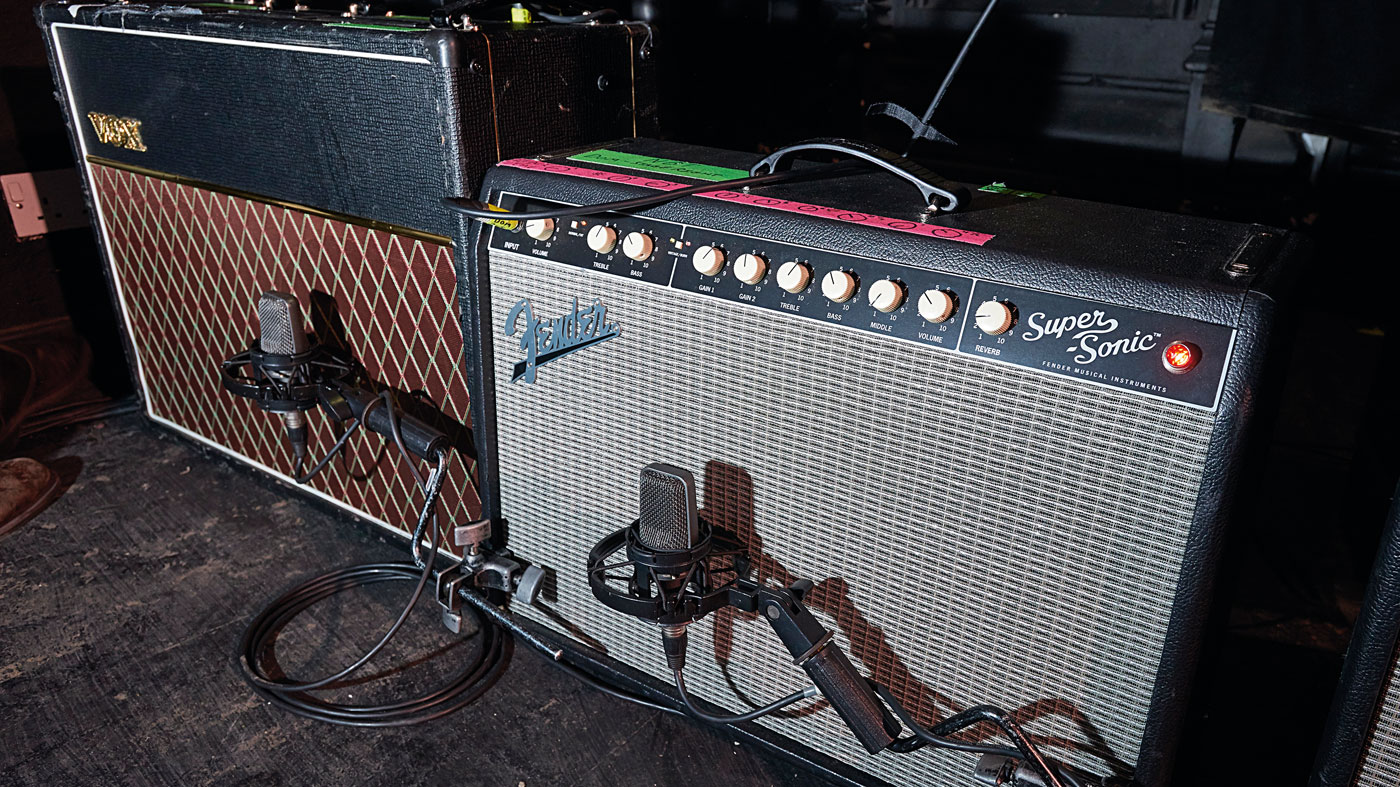
Eschewing the formula
Dom, you run a Super Sonic with an AC30?
Dom: “I’ve always been an AC30 fan, because when I hear a guitar I want to hear the Tele rock sound. But sometimes it can sound honky and it won’t break up loads so that’s when I asked Fender if there was anything they could recommend that would give me a lot of, basically, sizzle and cut.
We hate albums that are just 11 songs that sound the same and you can tell that they’ve written a song and said, ‘Well that works’
“I think every band should have at least one Fender amp in the rig because they cut straight through everything. So I added the Super Sonic and I run them both together and they work really well. The Super Sonic cuts and it’s got a lot of fizzly distortion frequencies.”
Joe: “That’s what we both use the Super Sonic for.”
The album’s songwriting seems especially varied, and suggests there’s different creative approaches going on in the band. Is that the case?
Joe: “Absolutely. I think that’s partly choice and partly necessity. I don’t think we’re good enough as songwriters to have a formula. A formula didn’t really work for us did it?
Dom: “That’s almost a good thing. When it comes to starting points for writing, it’s never the same thing; it could be lyrics, it could be a sound… or a drum loop, a riff or if we’ve heard something and we may see if we can do our version of that. That’s why the album is so diverse in the songwriting.”
Joe: “We hate albums that are just 11 songs that sound the same and you can tell that they’ve written a song and said, ‘Well that works so let’s duplicate it another 10 times.’ It keeps it interesting for us. When you play these songs for two years…
Dom: “The last thing you want is to get bored.” So do you both write primarily with guitars?
Dom: “Actually we write a lot with bass and drums, too.”
Joe: “Do you know what? We often start with the bass and drums.”
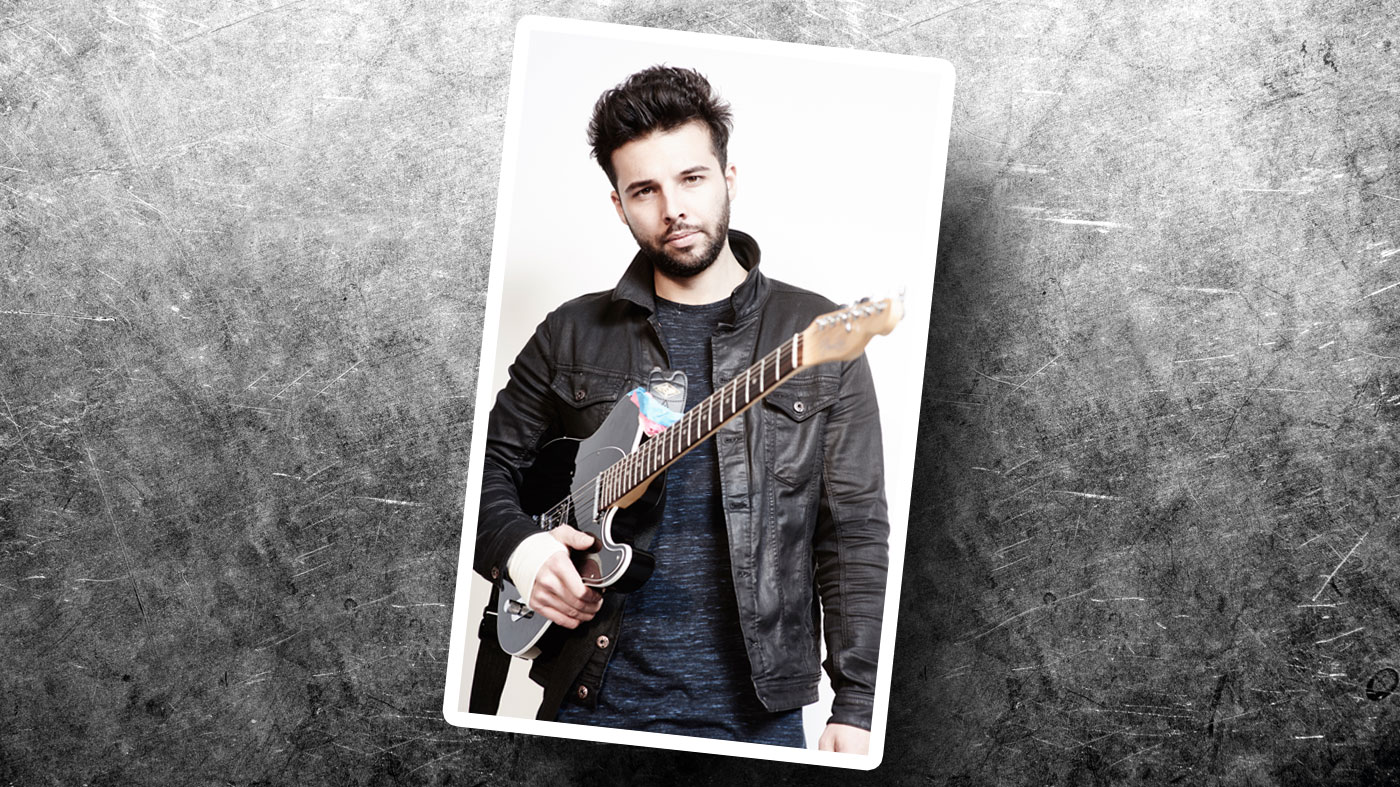
Rhythm is a dancer
That’s interesting, because the likes of Trip Switch and Drawing Pins are really led by the rhythm section’s groove…
Dom: “I write most of the drum and the bass parts. Don’t get me wrong, the boys will take it and do their thing to it and it will change by the time we get to the album, but fundamentally that’s how it starts off. Because we’re a lot about groove, how something feels.
We think about tempos and what will make people want to dance, or whether it’s going to be a head bopper
“We think about tempos and what will make people want to dance, or whether it’s going to be a head bopper. That’s quite a common instrumentation starting point for us. Which is weird when you think about it!”
And you’re involved in the lyrics as well Joe?
Joe: “I do pretty much all of them.”
Dom: “It’s a strange dynamic for a band!”
Joe: “We spent so long figuring out what we were doing with the dynamics in this band and we spent years writing.”
Dom: “When Joe was focussing on becoming a better lyricist, I was trying to get better at recording and production.”
Those roles beyond guitar playing seem very important when you look at the bigger picture of your sound
Dom: “We’re all about sparser playing. I think it’s a very selfless way for a guitarist to think. Some guitarists have an ego issue where they need to play all of the time and be the loudest.”
Joe: “We use the guitars for embellishment. The song is first.”
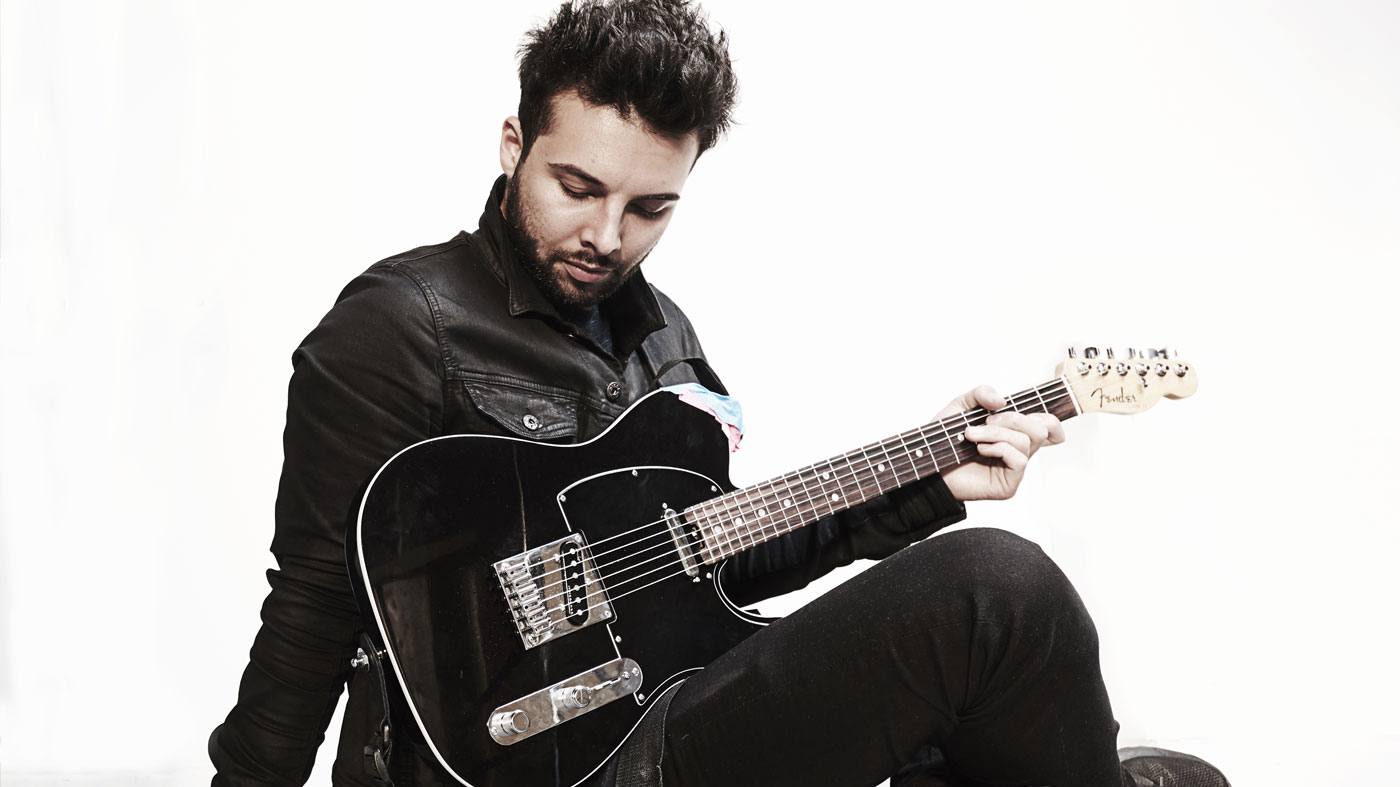
Global elite
Dom’s goes high end with his American Elite Tele…
Dom: “I was playing an 1982 reissue of a ’52 Telecaster, which i loved, but I was worried about touring with it. I instantly fell in love with this, and I never thought that would happen.
You always think a classic guitar is going to sound better but this has completely changed my opinion on that
“You always think a classic guitar is going to sound better than a new guitar but it’s completely changed my opinion on that because this thing has so many cool features; from the noiseless pickups to the compound radius neck.
“My tech Stu loves them; they’ve got locking tuners, so I can snap a string during a gig and he can run it off and have it restrung for the next song. I’ve actually got two of them now because I love them so much.”
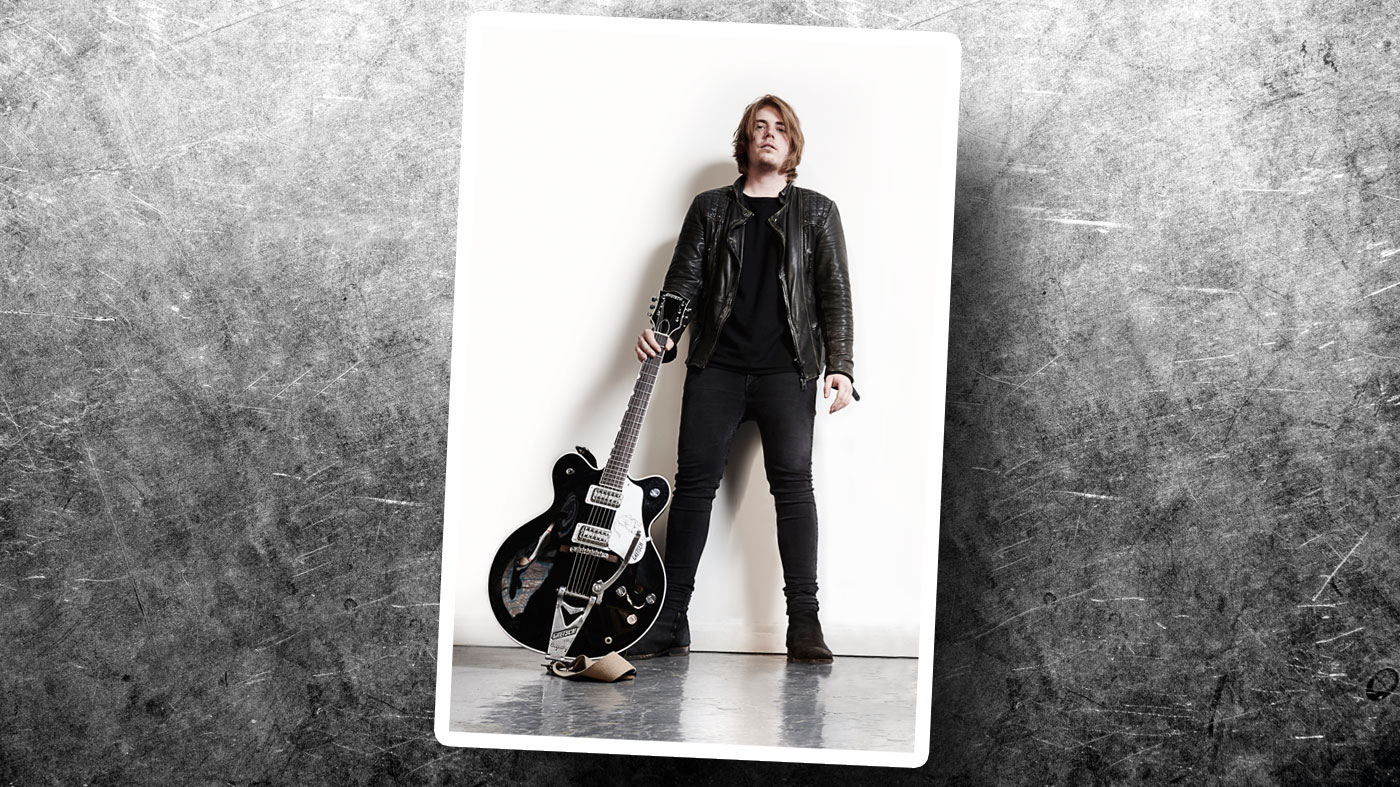
Wild cat
Why Joe loves his Gretsch Panther Center-Block…
Joe: “I was always a Les Paul guy and I was thinking of a 335. I picked up the Gretsch and it had similar characteristics. I love the new Gretsches because they’ve kind of taken away a lot of the problems from the hollowbodies.
They have less feedback problems. They play and sound amazing
“They have less feedback problems. They play and sound amazing. I feel like it has the depth that you get from a Les Paul-style guitar but when you dig in it brings out the hollowbody twang.
“I don’t use clean and distortion, I have distortion on all the time but roll off the [guitar’s] volume. I find it much more unique and you get so much more control; you can roll and get it completely clean depending on how hard you’re playing. The Gretsch is perfect for that.”
Don't Miss
Nothing But Thieves guitarist Joe Langridge-Brown talks debut album

Rob is the Reviews Editor for GuitarWorld.com and MusicRadar guitars, so spends most of his waking hours (and beyond) thinking about and trying the latest gear while making sure our reviews team is giving you thorough and honest tests of it. He's worked for guitar mags and sites as a writer and editor for nearly 20 years but still winces at the thought of restringing anything with a Floyd Rose.

